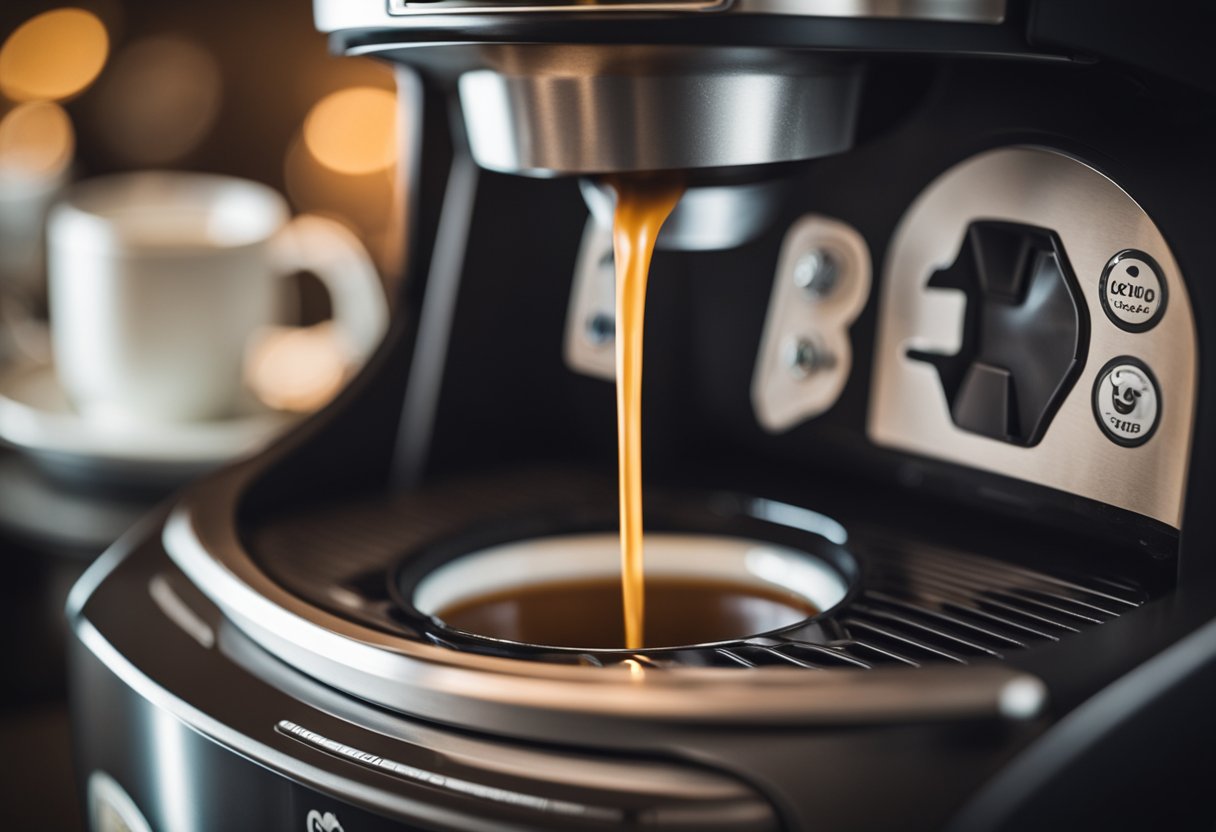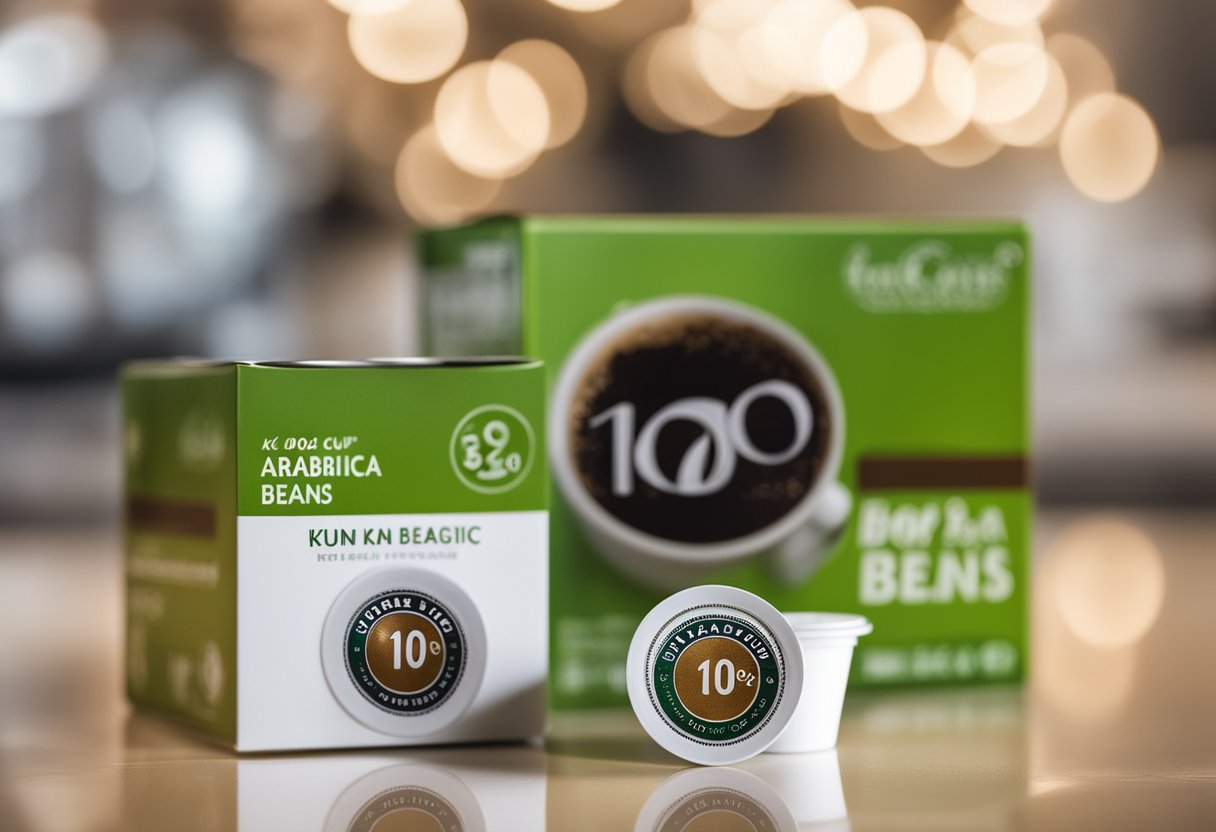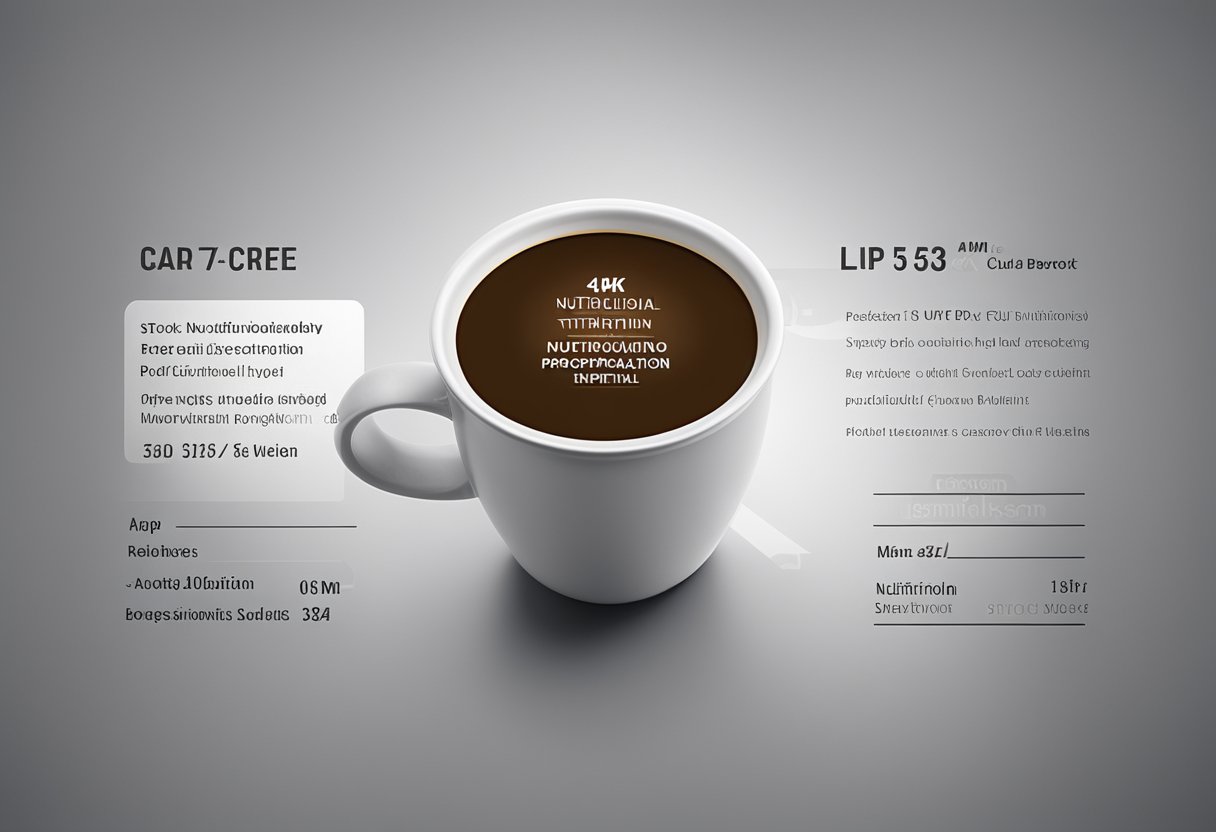1-800-982-4730
1-800-982-4730
K-Cups are a popular choice for coffee drinkers who want a quick and easy way to brew a cup of coffee. However, there is a growing concern about the health effects of K-Cup coffee. Some people are worried that the plastic used in K-Cups may be harmful to their health, while others are concerned about the quality of the coffee itself.

When it comes to the health effects of K-Cup coffee, there is some evidence to suggest that the plastic used in K-Cups may be harmful. Studies have shown that plastic can release harmful chemicals when it is heated, and some people worry that this could be happening when K-Cups are brewed. However, it is important to note that most K-Cups are made from BPA-free plastic, which is considered to be safe.
In terms of the quality of the coffee itself, there is some debate about whether K-Cup coffee is as good as freshly brewed coffee. Some people argue that K-Cups produce a weaker and less flavorful cup of coffee, while others say that the convenience of K-Cups outweighs any differences in taste. Ultimately, the decision about whether K-Cup coffee is healthy or not will depend on a variety of factors, including personal preferences and health concerns.

K-Cup coffee is a type of single-serve coffee that comes in a small plastic pod. These pods are filled with ground coffee and are designed to be used with a compatible coffee machine, such as a Keurig machine. When the pod is inserted into the machine, hot water is forced through the pod, extracting the coffee and delivering it directly into your cup.
K-Cups are available in a wide variety of coffee flavors and strengths, making it easy for coffee drinkers to find their preferred taste. The convenience of K-Cup coffee makes it a popular choice for busy individuals who don't have the time to grind their coffee beans or brew coffee manually.
However, there are some concerns about the health effects of K-Cup coffee. The plastic pods used to contain the coffee are not biodegradable and can contribute to environmental pollution. In addition, some studies have suggested that the plastic used in K-Cups may contain harmful chemicals that can leach into the coffee during the brewing process.
Despite these concerns, Keurig has stated that their K-Cups are safe and meet all applicable FDA regulations. They also offer a recyclable K-Cup pod that can be used with their machines.
Overall, while K-Cup coffee may not be the most environmentally friendly option, it can be a convenient and enjoyable way to enjoy a cup of coffee. It is important to be aware of the potential health and environmental impacts and to make informed choices when selecting your coffee and brewing method.

K-Cup coffee has become increasingly popular due to its convenience. With a Keurig coffee maker, one can have a fresh cup of coffee in seconds with just the push of a button. This is especially beneficial for those who lead busy lives and may not have the time to make coffee using traditional methods.
Another advantage of K-Cup coffee is the variety of flavors available. From bold and strong to light and fruity, there is a flavor for every taste preference. Additionally, K-Cups are available in both caffeinated and decaffeinated options, making it easy for individuals to enjoy a cup of coffee at any time of day.
However, some individuals may argue that the taste of K-Cup coffee is not as good as coffee made using traditional methods. While this may be true for some, it ultimately comes down to personal preference. Some K-Cup coffee makers have advanced brewing technology that can produce a high-quality cup of coffee that rivals traditional methods.
Overall, K-Cup coffee offers a convenient and customizable coffee experience. While the taste may not be for everyone, it is a great option for those who prioritize convenience and variety in their coffee routine.

K-cup coffee has become popular due to its convenience and ease of use. However, there are concerns about its health aspects. In this section, we will explore the health benefits and risks of K-cup coffee and discuss whether it is healthy or not.
K-cup coffee can provide some health benefits if consumed in moderation. Coffee is known to be rich in antioxidants, which can help prevent cell damage and reduce the risk of chronic diseases such as cancer and heart disease. It can also improve cognitive function, boost metabolism, and provide a temporary energy boost.
On the other hand, K-cup coffee also has some health risks. The plastic used in the K-cup pods can release harmful chemicals when exposed to high temperatures, which can be harmful to health. Additionally, some K-cups contain added sugars, flavors, and preservatives, which can increase the calorie count and negate the health benefits of coffee.
To make K-cup coffee healthier, it is recommended to choose organic, unflavored, and unsweetened K-cups. These K-cups are free from harmful chemicals and additives and provide the health benefits of coffee without the added calories and sugars.
For health-conscious individuals, it is recommended to consume K-cup coffee in moderation and balance it with a healthy diet and lifestyle. Drinking too much coffee can lead to caffeine addiction, insomnia, and anxiety, which can negatively impact overall well-being.
Overall, K-cup coffee can be a healthy beverage choice if consumed in moderation and chosen wisely. It is important to read the labels and choose K-cups that are free from harmful chemicals and additives and balance it with a healthy lifestyle.

K cup coffee is a popular option for those who want a quick and easy way to make coffee. However, many people wonder about the nutritional content of K cups and whether or not they are healthy.
In general, K cups do not contain any calories on their own. However, adding milk, cream, or sugar to your coffee can significantly increase the calorie count. One tablespoon of whole milk adds 9 calories, while one tablespoon of heavy cream adds 30 calories. Adding one packet of sugar adds about 16 calories. Therefore, it's important to be mindful of what you add to your K cup coffee if you're watching your calorie intake.
When it comes to caffeine content, K cups typically contain between 75 and 150 mg of caffeine per 8 oz cup. However, the caffeine content can vary depending on the type of coffee beans used, the roast level, and the amount of coffee in the pod. Robusta coffee beans generally have more caffeine than Arabica beans, so coffee pods made with Robusta beans will have a higher caffeine content.
In terms of fat content, K cups do not contain any significant amount of fat. However, adding milk or cream to your coffee can increase the fat content. Whole milk contains about 1.5 grams of fat per tablespoon, while heavy cream contains about 5 grams of fat per tablespoon.
Finally, some K cups contain antioxidants, which are beneficial for overall health. For example, VitaCup coffee pods contain Vitamin B1, B5, B6, B9, B12, D3 and other antioxidants. Lifeboost Coffee K Cups also claim to be healthier than other brands, with a focus on delivering the healthiest coffee experience possible. However, it's important to note that not all K cups contain antioxidants, so it's important to read the label carefully if this is a concern for you.
Overall, K cup coffee can be a healthy option if consumed in moderation and without added sugar or cream. However, it's important to be mindful of what you add to your coffee and to choose K cups that align with your nutritional goals.
When it comes to K-cup coffee, freshness is key. Coffee beans start to lose flavor and aroma soon after they are roasted, so it's important to choose K-cups that are made with freshly roasted beans. Many K-cup brands use a variety of roast levels, including light, medium, and dark roasts, to cater to different tastes.
One of the most popular K-cup brands is The Original Donut Shop, which offers a medium roast coffee that is smooth and well-balanced. Caribou Coffee also offers a range of K-cup coffees, including a dark roast that has a robust flavor.
For those who prefer decaf, there are also K-cup options available. Community Coffee offers a special decaf blend that is smooth and flavorful.
When it comes to quality, it's important to look for K-cups that are fair trade certified and organic. This ensures that the coffee beans are sourced responsibly and produced without harmful chemicals.
Overall, choosing high-quality and fresh K-cups can lead to a better coffee experience. It's worth taking the time to research different brands and roast levels to find the perfect cup of coffee for you.
K-cup coffee has become increasingly popular in recent years, but with its convenience comes concerns about its impact on the environment. The single-serve coffee pods are often made of plastic and aluminum, which can take hundreds of years to decompose in landfills.
Many coffee companies have responded to these concerns by creating recyclable or compostable K-cups. However, it is important to note that not all K-cups are created equal. Some "compostable" K-cups actually require special composting facilities to break down properly and may not be accepted in regular compost bins.
Additionally, even if a K-cup is labeled as recyclable, it may not actually be recycled due to the complexity of separating the plastic and aluminum components. This means that many K-cups still end up in landfills, contributing to the growing problem of waste.
One solution to this problem is to use refillable K-cup pods that are made of materials such as stainless steel or silicone. These pods can be filled with any type of ground coffee and can be used multiple times, reducing waste and environmental impact.
Overall, while K-cup coffee may be convenient, it is important to consider its environmental impact and explore alternative options that are more sustainable.
K-Cups have become a popular way to brew coffee due to their convenience and ease of use. However, some people have raised concerns about the potential health risks associated with the plastic used in K-Cups.
Studies have shown that the plastic used in K-Cups, which is typically #5 plastic, can release harmful chemicals when heated. One of the main concerns is the presence of Bisphenol A (BPA), a chemical that has been linked to a range of health problems, including cancer, reproductive issues, and developmental problems in children.
To address these concerns, some K-Cups are now made with BPA-free plastic. However, even BPA-free plastic can still release harmful chemicals when heated.
One alternative to plastic K-Cups is stainless steel or aluminum reusable pods. These pods are designed to be filled with ground coffee and used in place of disposable K-Cups. While these reusable pods may be more expensive upfront, they can save money in the long run and are a more environmentally friendly option.
In summary, while K-Cups are convenient, the plastic used in them can potentially release harmful chemicals when heated. Those who are concerned about these risks may want to consider using stainless steel or aluminum reusable pods instead.
While Keurig coffee may be convenient, there are potential health risks associated with consuming it. Here are some of the risks to consider:
According to a report from Wellness Mama, plastic coffee capsules can disrupt the hormone system, which could contribute to weight gain, hormonal imbalances, and fertility issues. While Keurig has stated that their cups are BPA-free and made of "safe" plastic, some studies show that even this type of material can have harmful effects on the body.
Because Keurig cups are made of plastic, they can be prone to mold growth. This can be especially problematic for people with mold allergies or sensitivities. Additionally, some Keurig cups may contain toxins from the manufacturing process, which could potentially be harmful to human health.
While caffeine is known to improve cognitive function, excessive consumption can have negative effects on the brain. Consuming too much caffeine can cause anxiety, restlessness, and insomnia. It is important to monitor caffeine intake and limit consumption to a reasonable amount.
While coffee is often associated with improving mood, excessive consumption can have negative effects on mental health. Studies have shown that consuming more than four cups of coffee per day can increase the risk of depression and anxiety.
In conclusion, while Keurig coffee may be convenient, it is important to consider the potential health risks associated with consuming it. It is important to monitor caffeine intake and limit consumption to a reasonable amount.
Coffee is one of the most popular beverages in the United States, with millions of Americans consuming it every day. According to a study published in the Journal of the Academy of Nutrition and Dietetics, 75% of US adults aged 20 and above consume coffee. The same study found that the average daily coffee intake among coffee drinkers was 165 milligrams of caffeine per day.
The study also found that coffee consumption patterns in the US vary across socio-demographic groups. For instance, men were more likely to consume coffee than women, and younger adults were more likely to consume coffee than older adults. Additionally, individuals with higher education levels and income were more likely to consume coffee than those with lower education levels and income.
Coffee intake is not limited to traditional coffee products such as brewed coffee, espresso, or cappuccino. The study found that coffee-containing beverages, including decaffeinated and regular coffee, were consumed by US adults. Other popular coffee products include K-cup coffee, which has become increasingly popular in recent years due to its convenience and ease of use.
While coffee has been associated with several potential health benefits, such as reducing the risk of type 2 diabetes, liver cancer, and Parkinson's disease, the health effects of K-cup coffee specifically are not well understood. Some studies have suggested that K-cup coffee may contain higher levels of acrylamide, a potential carcinogen, than traditional brewed coffee.
Overall, while coffee intake is a common practice among Americans, the health effects of specific coffee products such as K-cup coffee are still being studied. It is important to consume coffee in moderation and to be aware of any potential health risks associated with specific products.
For those looking for an alternative to K-Cup coffee, Brim offers a solution. Brim is a coffee maker that uses ground coffee instead of K-Cups. It is a great option for those who want to reduce their waste and enjoy a fresher cup of coffee.
Brim coffee maker comes in various models, including the Brim 8 Cup Pour-Over Coffee Maker and Brim 19 Bar Espresso Maker. These machines are designed to make coffee that is rich in flavor and aroma. They also come with features like programmable settings, automatic shut-off, and easy-to-clean parts.
One of the benefits of using Brim is that it allows you to control the strength and flavor of your coffee. You can adjust the amount of coffee grounds you use and the brewing time to get the perfect cup of coffee. This is not possible with K-Cups, which are pre-measured and cannot be adjusted.
Another advantage of using Brim is that it is more eco-friendly than K-Cups. K-Cups are not recyclable and end up in landfills, contributing to environmental pollution. Brim, on the other hand, uses ground coffee, which can be composted or used as fertilizer.
Overall, Brim is a great alternative to K-Cup coffee. It offers more control over the brewing process, is eco-friendly, and produces a fresher cup of coffee.